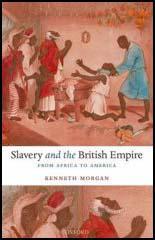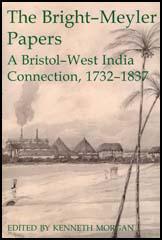Spartacus Review
Volume 11: 21st January, 2008
Slavery

Title: sLAVERY-bRITISH-eMPIRE-kENNETH-m0RGAN/DP/o199238995/REF=SR_1_3?IE=utf8&S=B00KS&QID=12o116o341&SR=1-3">Slavery and the British Empire
Author: Kenneth Morgan
Editor:
Publisher: Oxford University Press
Price: £50.00
Bookshop: Amazon
Spartacus Website: Slavery and the USA
Category:
Slavery and the British Empirer provides a clear overview of the entire history of British involvement with slavery and the slave trade, from the Cape Colony to the Caribbean. The book combines economic, social, political, cultural, and demographic history, with a particular focus on the Atlantic world and the plantations of North America and the West Indies from the mid-seventeenth century onwards. Kenneth Morgan analyses the distribution of slaves within the empire and how this changed over time; the world of merchants and planters; the organization and impact of the triangular slave trade; the work and culture of the enslaved; slave demography; health and family life; resistance and rebellions; the impact of the anti-slavery movement; and the abolition of the British slave trade in 1807 and of slavery itself in most of the British empire in 1834. As well as providing the ideal introduction to the history of British involvement in the slave trade, this book also shows just how deeply embedded slavery was in British domestic and imperial history - and just how long it took for British involvement in slavery to die, even after emancipation.

Title: The Bright-Meyler Papers
Author: Kenneth Morgan
Editor:
Publisher: Oxford University Press
Price: £75.00
Bookshop: Amazon
Spartacus Website: Slavery and the USA
Category:
The documents collected here illuminate the conduct of British trade and investments in the Caribbean when slavery was at its height and Jamaica was the wealthiest territory in Britain's Atlantic empire. Pertaining to the commercial and plantation interests of two Bristol families connected through marriage and business, the documents include correspondence, wills and inventories, partnership agreements, insurance policies and property deeds. The introduction addresses issues of the slave trade and sugar cultivation, capital accumulation, the ways in which a West India fortune was created, the risk environment of the Caribbean, and social, economic and demographic conditions in eighteenth-century Bristol and Jamaica. A valuable source for historians of the Georgian period, this volume shows that British merchants connected with the West Indies were centrally concerned with improvement, independence, and social mobility.
